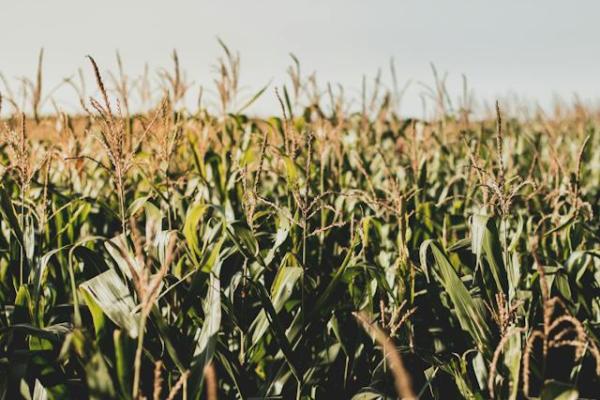Corn Harvest Challenges Amidst Wildfires: Climate's Impact on Crop Delays

A significant challenge persisted in southwest Ohio in early November as farmer Scott Haerr realized that despite favorable weather conditions, the crop hadn't ripened as expected, leading to concerns over the corn harvest on his farm. This delay was attributed to smoke from Canadian wildfires that lingered over Ohio during critical corn development stages in June and July.
The impact of the smoke on crops was significant, with several states, including Ohio, experiencing air quality alerts due to over 600 wildfires in Canada during that time. The slow maturation of corn hybrids engineered for specific temperature conditions highlighted the vulnerability of crops to minor weather changes, particularly when low solar radiation caused by smoke affected growth.
Today, Ohio's corn harvest lags more than 8% behind the five-year average, with even more delays in states closer to the wildfire smoke-affected areas. Corn is a crucial global grain, with a significant portion exported, mainly to China, for pig feed and food production. It serves various purposes, including ethanol fuel, animal feed, and food products, making it a cornerstone of agriculture in the United States.
The influence of climate change on wildfires and droughts poses a growing threat to America's Corn Belt, potentially disrupting the production of this vital food source for millions of people. Weakening corn stalks and the approaching windy season also add to growers' concerns, as they face an increased risk of crop damage.
State Climatologist of Ohio Aaron Wilson, assistant professor - Ag Weather and Climate Field Specialist, Department of Extension - College of Food and Agriculture and Environmental Science at The Ohio State University, pointed out that climate change increases the risk of drought and wildfires in specific regions. He emphasized the role of the northerly airflow out of Canada, which brought cooler temperatures and the wildfire smoke that affected crop growth.
While lower temperatures from wildfire smoke can sometimes benefit crops by reducing moisture loss, various factors, including the smoke acting as a barrier to radiant heat and below-average heat accumulation on certain days, contributed to the delayed maturation of corn last summer.
Farmers like Haerr expect harvest to go into December this year and hope for the weather to cooperate when the time comes.
To learn more, visit The Guardian.
